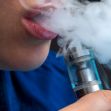On Thursday, April 29, 2021, the Biden administration announced that menthol cigarettes and flavored cigars will be banned.
In 2013, a citizen petition advocating the ban was circulated and presented. This petition resulted in a lawsuit filed by anti-smoking and medical groups last summer alleging that regulators had “unreasonably delayed” their response. Thursday was a court-imposed deadline for the FDA to respond.
The managing attorney for one of the plaintiffs in that case, Kelsey Romeo-Stuppy for Action on Smoking and Health, said, “We are thrilled that the FDA is taking this important step to protect all citizens, but especially African-Americans, from the deadly impacts of menthol.”
Janet Woodcock, M.D., Acting Food and Drug Administration Commissioner, said, “Banning menthol—the last allowable flavor—in cigarettes and banning all flavors in cigars will help save lives, particularly among those disproportionately affected by these deadly products. With these actions, the FDA will help significantly reduce youth initiation, increase the chances of smoking cessation among current smokers, and address health disparities experienced by communities of color, low-income populations, and LGBTQ+ individuals, all of whom are far more likely to use these tobacco products.”
Woodcock believes the bans will “launch us on a trajectory toward ending tobacco-related disease and death in the US.” She referenced research that estimated a menthol ban would prevent 630,000 tobacco-related deaths over 40 years. More than a third of those would be African-Americans.
The FDA statement pointed out that menthol makes tobacco tastier and “facilitates progression to regular smoking, particularly among youth and young adults.” It went on to say, “One study suggests that banning menthol cigarettes in the U.S. would lead an additional 923,000 smokers to quit, including 230,000 African Americans in the first 13 to 17 months after the ban goes into effect.
Mitch Zeller, director of the FDA’s Center for Tobacco Products said, “For far too long, certain populations have been targeted and disproportionally impacted by tobacco companies.”
About 20 million Americans smoke menthols, the FDA said. Because the data shows menthols have a larger than average effect on the health of young people and racial minorities, public health groups like the American Medical Association also favor the ban. Eighty-five percent of Black smokers use menthols, as compared to about 33% of white smokers.
Carol McGruder of the African American Tobacco Control Leadership Council said, “The science is there, the data is there, so why are these products still on the market?” After the FDA announcement, her group, together with Action on Smoking and Health, the American Medical Association and the National Medical Association declared that they will push for speedy implementation: “this is not the end of this fight, only the next stage.”
The ban has Democratic Congressional support, as well. According to Sen. Dick Durbin and Reps. Raja Krishnamoorthi and Bobby Rush, the FDA is duty-bound to ban menthols. “These failures to protect children, particularly African American children, from a path to addiction are inexcusable,” they said.
Companies focused menthol marketing on Black communities for decades. Company documents released through 1990s litigation showed that companies see menthol cigarettes as good “starter” products because they taste better to teenagers.
“There was a specific, intentional focus on creating the next generation of smokers by making menthol cigarettes available in those communities,” said Dr. Nia Heard-Garris. Dr. Heard-Garris chairs the American Academy of Pediatrics section on minority equity and health.
The ban will be a significant issue for the tobacco industry, as about a third of all cigarettes sold in the U.S. are menthol. Though tobacco use is slowly declining and companies have been creating alternate products, those new items are a tiny portion of their sales.
R.J. Reynolds America’s spokeswoman, Kaelan Hollon, said the company will submit evidence countering the FDA’s proposal. She said, “Published science does not support regulating menthol cigarettes differently from non-menthol. The scientific evidence neither shows a difference in health risks between a menthol and a non menthol cigarette, nor does it support that menthol cigarettes adversely affect initiation, dependence or cessation.”
In a statement, an Altria spokesman said that “serious unintended consequences” would result from “criminalizing menthol.”
A bill banning all flavored e-cigarettes and menthols passed the house last year but died in the Senate. The FDA banned all other flavored cigarettes in 2009 when they were given authority over tobacco products.
The ban won’t go into effect immediately; there’s a rule-making process that could take years, and after that, there could be legal challenges from the tobacco industry. The last time the FDA proposed banning menthol cigarettes, it got more than 174,000 public comments. According to Zeller, “By law we have to read every single comment that comes in and carefully consider them.”
President of Campaign for Tobacco-Free Kids Matthew Myers called this a “historic” move in protecting kids from becoming addicted to tobacco. He said, “It has the potential to be the strongest action our nation has ever taken to drive down the number of kids who start smoking and the number of Americans who are sickened and killed by tobacco.”
The American Civil Liberties Union (ACLU) and other groups weighed in with concerns that this ban would have “serious racial justice implications” because resulting criminal penalties would impact people of color more than other groups.
Just hours after news of the FDA proposal got out, the Law Enforcement Action Partnership sent out a news release about its opposition to the menthol ban. The organization’s tax form revealed its biggest donor in 2019 was Reynolds American Inc. Services Company, which gave them $450,000, more than a third of its grants and contributions for the year. The group used an old (and discredited) argument that banning menthol would “be bad for police-community trust.”
The FDA said that if the ban is implemented, individual users won’t be affected. “[E]nforcement of any ban on menthol cigarettes and all flavored cigars will only address manufacturers, distributors, wholesalers, importers and retailers. The FDA cannot and will not enforce against individual consumer possession or use of menthol cigarettes or any tobacco product,” Zeller said. “State and local law enforcement does not enforce the Food, Drug and Cosmetic Act.”
Smoking is blamed for 480,000 U.S. deaths each year in the U.S. It can cause heart attacks, strokes, and cancer. About 14% of Americans are cigarette smokers, and smoking is split about evenly between Black and white populations. The U.S. Surgeon General has noted that Black smokers are less likely to be able to quit and attributes that to menthol cigarettes.
Menthol occurs in mint plants and is also used in cough drops and other medicines for its cooling effects. Cigarette makers began adding it to their products in the 1920s after they realized it made smoking less harsh on the throat.
California and Massachusetts have laws banning menthol in tobacco, but California’s ban was suspended after a legal challenge the tobacco companies backed. The issue is on the ballot for next year.






